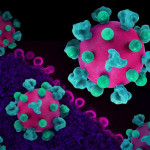Fewer people who took the integrase inhibitor Isentress (raltegravir) once-daily were able to control their HIV levels compared with people who took the drug twice-daily, as is currently recommended, according to a release from the drug’s maker Merck.
Isentress was approved in 2007 to treat people with HIV resistant to most other antiretroviral drugs and in 2009 to treat people who were new to therapy. Given how quickly the body processes and eliminates Isentress, it was initially studied and approved as a twice-daily dose.
The Department of Health and Human Services (DHHS) HIV treatment guidelines lists Isentress as a “preferred” regimen for first-time HIV treatment takers. Given that the other preferred treatments are all once-daily, Merck scientists chose to test this dosing strategy for Isentress in people new to treatment.
In the study, researchers randomized 770 people to take either 800 milligrams (mg) of Isentress once-daily or 400 mg of Isentress twice-daily, both in combination with Truvada (tenofovir and emtricitabine). After 48 weeks, the two arms were compared and reviewed by the research team and by a data safety monitoring board (DSMB).
People taking once-daily Isentress did well, with 83 percent having virus levels under 50 copies at week 48, but not as well as those taking twice-daily Isentress—89 percent of whom had undetectable virus after 48 weeks. While the results were close, the difference in response was large enough statistically that once-daily dosing failed to achieve the study goal, which was non-inferiority to twice-daily Isentress.
A deeper analysis showed that the greatest difference was in people who started treatment with viral loads over 100,000. Only 74 percent of those on once-daily Isentress with high pre-treatment viral loads had HIV levels under 50 copies at 48 weeks compared with 84 percent on twice-daily Isentress with high pre-treatment viral loads.
Though the trial was slated to continue following people beyond 48 weeks, the DSMB decided to end the study based on these results. Merck reports that it will present more complete data from the study at an upcoming conference in 2011.
Advertisement
Advertisement
Advertisement






Comments
Comments